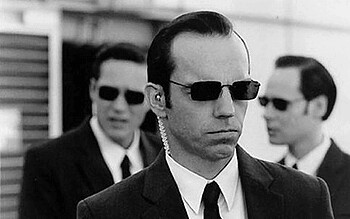There are several things particular to the writing life that engender disdain and unbounded cynicism: snotty grad (and undergrad) students dissing your submissions to their crappy literary journals, the continued success of fourth-rate trash mongers, publishers' marketing departments, and literary agents.
A literary agent can be a force for good or an indecipherable nitwit who, if you allow it to happen, can flush your career down the toilet with their incompetence.
I can't say that my literary agent is in the latter category. He's with an old, established agency, and has contacts at all the major publishing houses. He's dutifully sent out my novel to several editors, who have rejected it with varying degrees of interest. This author-to-agent-to-editor-to-agent-to-author feedback loop has been going on for over a year now. I've asked him on several occasions if I should rewrite certain sections of the book, but he advises me otherwise.
Looking for a publisher
So while the novel awaits an enlightened soul to see its many merits, my agent does what it appears most other such types do in a similar situation.
Goddamn nothing.
A friend of mine complained about editors thus: "Editors are stupider than agents," which tells you about his love of both.
I may be in middle age, but I have approached the publishing process with a unacceptable degree of naiveté. Despite overwhelming evidence to the contrary, I had a semi-romantic notion of a literary agent when this all started.
Oh, they would fall in love with your writing, they would fall in love with your novel, they would fall in love with you. Tough love, all in all: an agent would have the spine to tell you that this part of the book needed trimming or that the title you thought was perfect beyond poetry actually was landfill-level putrid. (Kind of like Dr. Phil).
Better yet, the agent would be a one-person cheerleading squad, helping you through the inevitable peaks and troughs of getting the book to print. They wouldn't let you get depressed. They'd keep your head above water.
And when it came to business, they'd be a Rotweiler, barking mad at the idiot publisher who tried to insult your talent with an advance just in the low six figures. The nerve!
These notions were formulated through a few random encounters. When in my early 20s, I knew someone who worked for a big shot New York literary agent, whose clients included several Pulizer Prize winner and one Nobel laureate. What did this agent do to earn her keep? Virtual therapy sessions with neurotic, insane writers, and doing battle with editors who possessed the intelligence of a small acquatic creature. The agent fought the system, and always won.
Fast forward about 15 years. Wife has contracted with an up-and-coming talent at an established, well-regarded literary agency who is shopping her book to different publishing houses. After a year or so of this, and, not having heard from the agent in several months, Wife e-mails the agent for an update. No response. Then, by chance, she finds out that the dude is no longer a literary agent, has renounced worldly goods and moved to Tibet or Texas or somewhere, and just forgot to call her.
Then there's the tale of a writer whose novel was taken on by another established agent with enough contacts around town to get a free meal just about anywhere. Over the course of a year, the writer asks the agent how many publishers have seen it, what kind of responses they're getting, etc. I'm sending it all over, the agent says, and getting good feedback but no deals.
My acquaintance finally gets tired of this kind of thing, and contacts another agent. The new agent calls some of the houses the first one said he'd sent the novel to. The editors reply, "What the fuck are you talking about? The other guy never sent us anything." The first agent was too busy to, you know, do his job.
The truth is that they're busy. Really bloody busy, and if one seriously thinks that they're sitting around, contemplating the Next Move in Your Career, you were probably raised on a commune, along with Wife's agent. Like a realtor, a literary agent is working on commission, and the more listing he or she gets, the more likely it is he or she will make a killing. And the less likely it is that you'll get a prompt return to phone calls.
I'm not bitter, just realistic. Some people get a guardian angel to steer their literary careers (yes, such writers are usually preternaturally talented), but most of us see our best career guide staring us in the mirror, and we usually aren't thrilled with what we see.
Sunday, December 11, 2005
Agents of Destruction
Subscribe to:
Comment Feed (RSS)


|